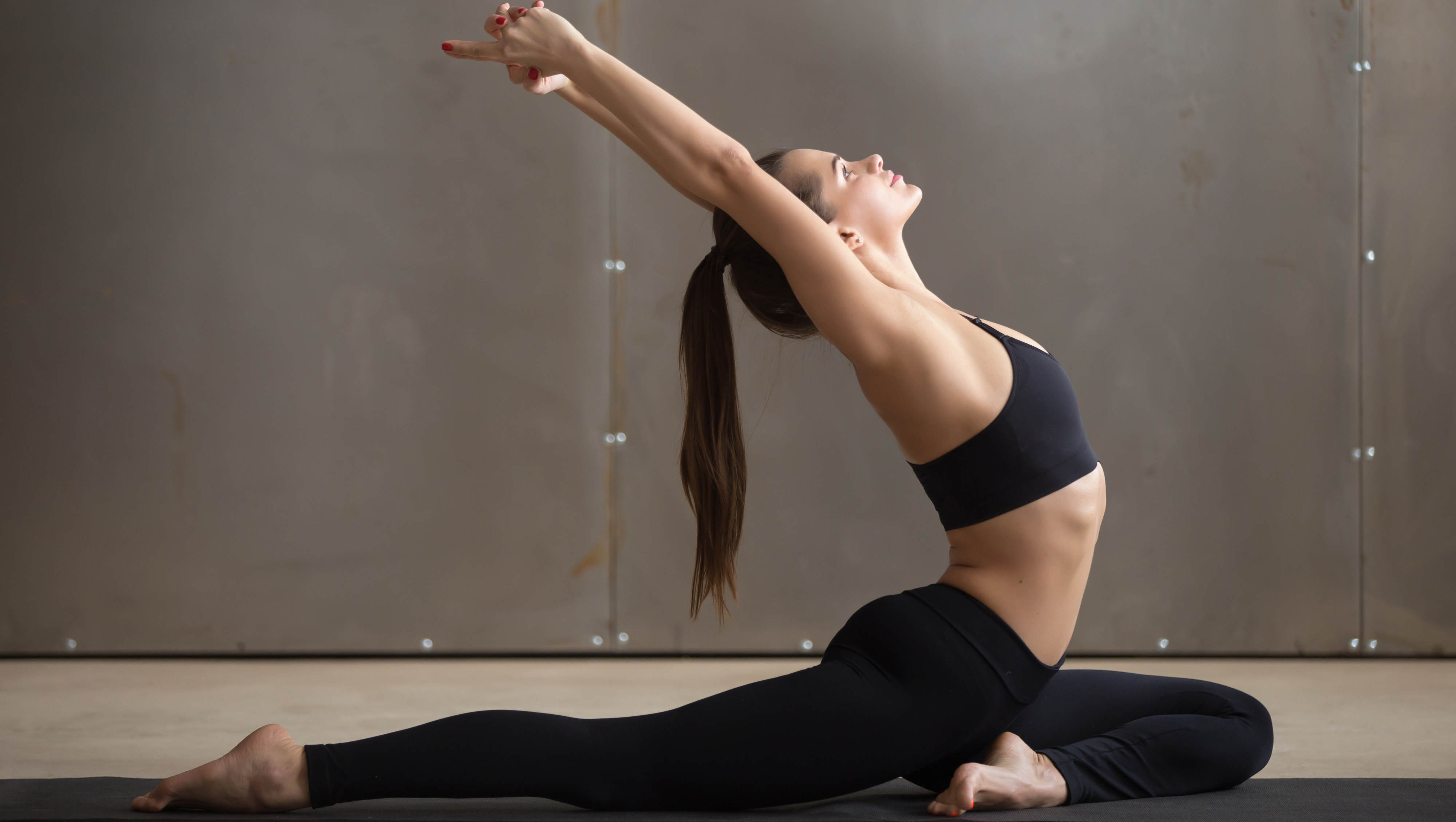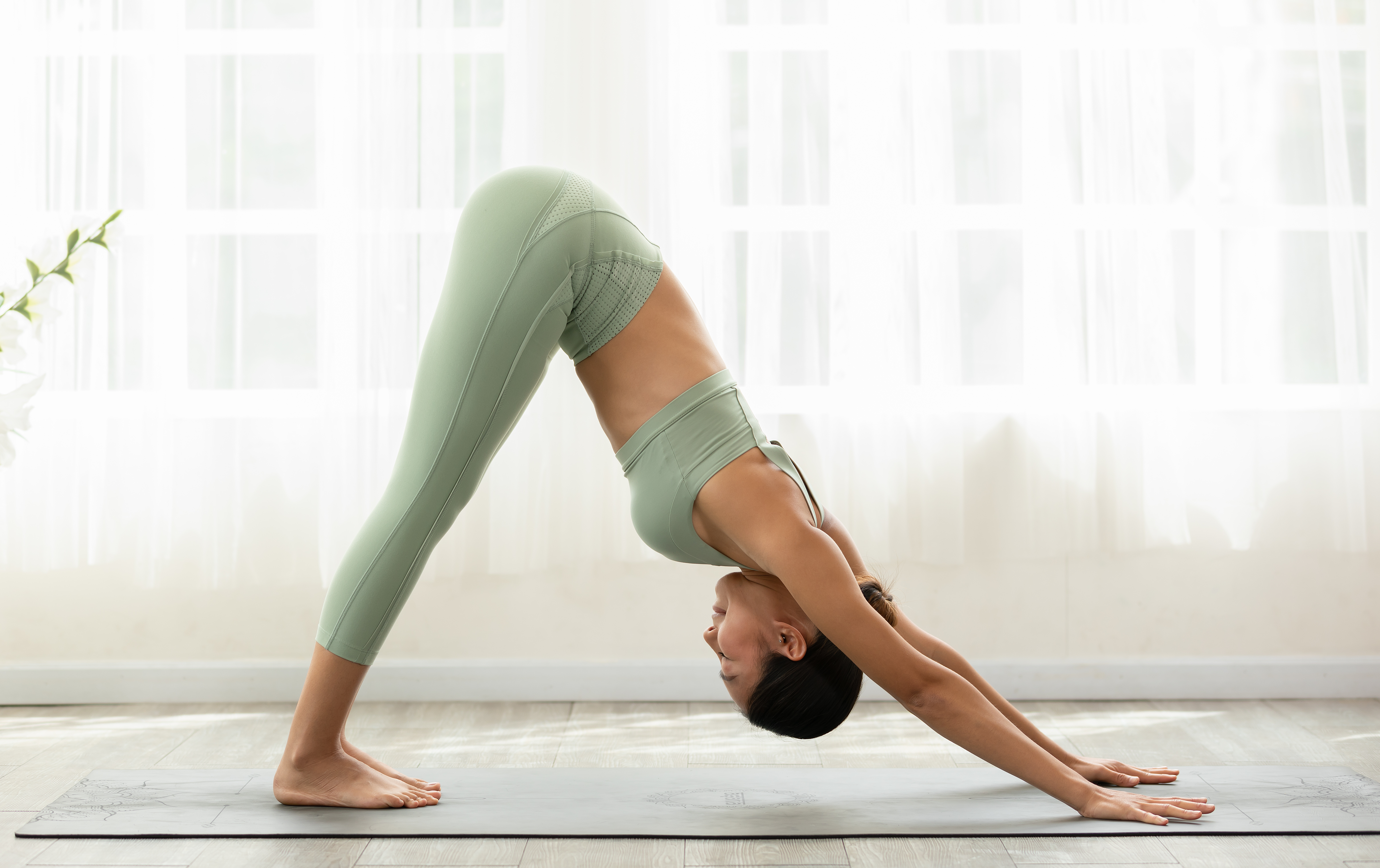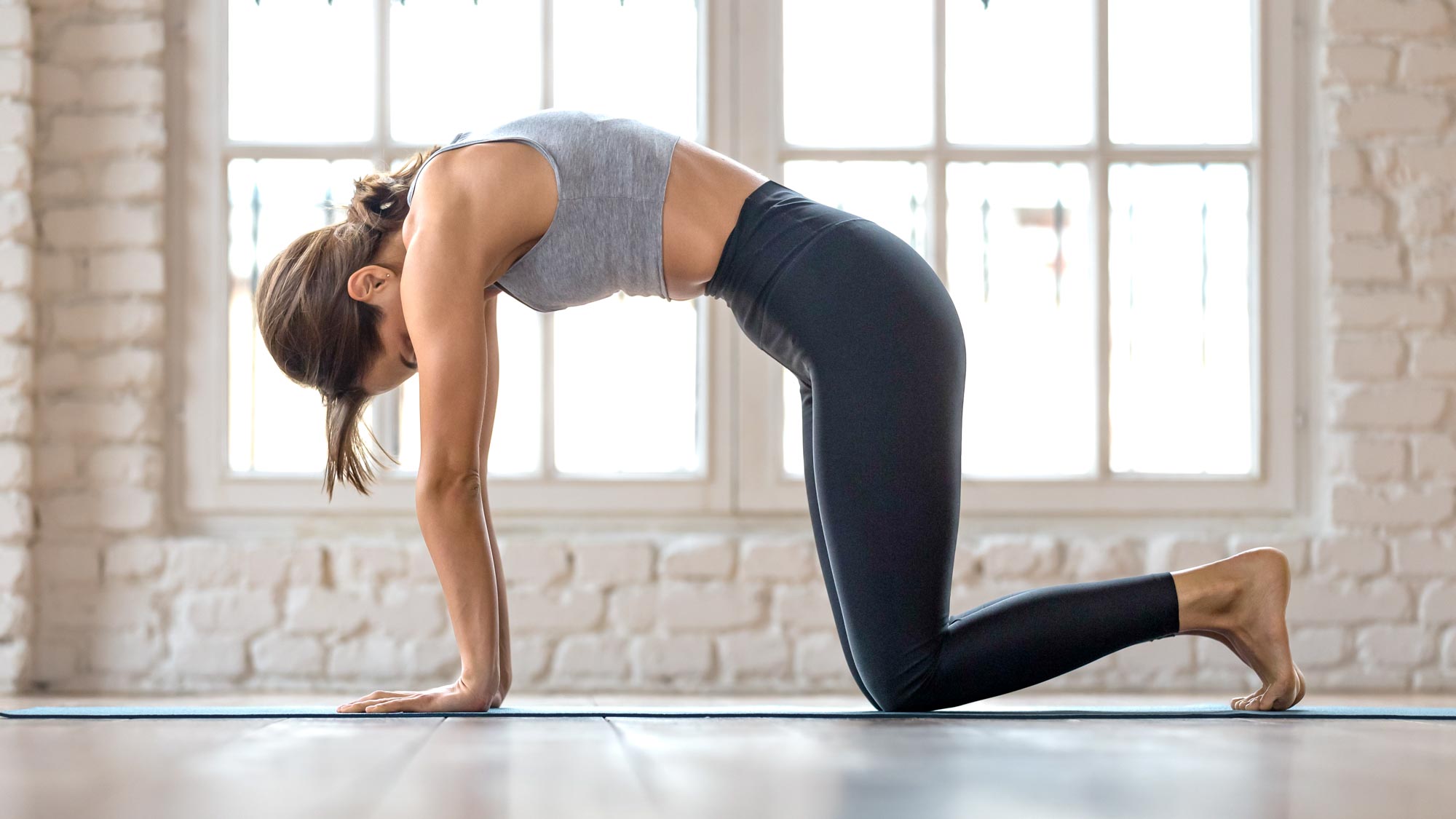
Mobility has become a bit of a buzzword in the fitness world. Perhaps you’ve had an exercise related injury and been told you should work on your mobility to avoid this happening again.
Or, maybe you’ve looked into buying one of the best yoga mats after hearing the benefits that yoga can have on your joints. But what actually is mobility and what’s an easy way to start improving your mobility? Stick with us to find out.
When we talk about mobility, we're referring to being able to move easily without pain or discomfort. Spending time working on your mobility can help to enhance flexibility, joint range of motion, and muscle strength. This in turn can prevent injuries and improve your exercise performance.
It doesn’t matter if you're a regular exerciser or someone who sits at a desk all day (or both!), mobility exercise can counteract the negative effects of a sedentary lifestyle, such as tight muscles and stiff joints.
And thanks to fitness trainer, Rachael Sacerdoti, you can start to work on your mobility from the comfort of your own home with this 11 move mobility routine.
What is the 11-move mobility routine?
We spoke to Sacerdoti to find out why she values mobility work as a coach and why she picked the exercises featured in her mobility routine. She told us, "Mobility exercises are so important for keeping your joints healthy, preventing injury and improving movement, making it easier to stay active and age well."
Sacerdoti added that the moves included in her mobility routine are her favorites because they offer a comprehensive approach to improving overall body movement and reducing the risk of injury.
Her advice before getting stuck into the series of mobility moves is to remember to focus on proper form and technique to maximize the effectiveness of each stretch. Listen to your body and adjust the intensity and duration of each stretch as needed. "Take your time and breathe deeply throughout each movement to enhance relaxation and flexibility," she added.
You can follow along to her video demonstrations on her Instagram post or use the bellow instructions on how to perform each part of the workout. Just grab a mat and you're good to go.
1. Warm up
- To keep things nice and simple, Sacerdoti begins the routine with some light jogging on the spot.
- There is no need to go hard with this, this warm-up section is just to get your body moving and slightly looser before leaning into the exercises.
2. Thread to needle
- Lift one hand off the floor and reach it underneath your stomach to your opposite side, as you let your shoulder lower toward the floor.
- Allow your chest and head to rotate as you do this gentle twist.
- Twist as far as is comfortable, and hold the stretch. Slowly return to the starting position.
- Alternate sides.
3. Pigeon pose
- Start by positioning your right leg forward, bending it so that your toes are tucked under your hips while resting on the floor.
- Simultaneously, extend your left leg straight behind you, ensuring the top of your foot rests comfortably on the mat.
4. Upward to downward dog
- From a plank position, lower down as you exhale, keeping elbows close to ribs.
- Inhale, straighten arms, lift chest, and arch back into upward dog.
- Exhale, tuck toes, lift hips into downward dog. Hold each pose for a few breaths.
- Transition smoothly between poses, focusing on breath and alignment.

5. 90/90 stretch
- Start by sitting on the floor with your legs bent in front of you and your knees at a 90-degree angle.
- Place your hands in front of you for support.
- Keep your knees bent at 90 degrees, with your feet on the ground.
- Swivel both knees from side to side to touch the floor whilst keeping your feet in place.
6. Cossack lunges
- Stand upright with your legs spread.
- Your toes should be pointed straight ahead. Inhale, and move your weight to your right leg, bending your right knee and sitting back as far as you can.
- Your left leg should remain extended while your left foot rotates on your heel, toe up.
- Your right heel should remain on the ground and your torso should be upright.
- Alternate movement.
7. Back opener
- Start by laying on the floor.
- Keep a bend in your knees and place feet flat on the floor.
- Hold the outer portion of your knee with the opposite hand and pull down both knees towards the floor.
- Alternate sides.
8. Cat cow
- Keep your hands shoulder-width apart and your knees directly below your hips.
- Inhale deeply while curving your lower back and bringing your head up, tilting your pelvis up like a cow.
- Exhale deeply and bring your abdomen in, arching your spine and bringing your head and pelvis down like a cat.

9. Side to side lunges
- Stand with feet shoulder width apart, then step to the side with one foot while keeping both feet flat on the ground.
- Lower your body into a lunge position, keep the knee aligned with your foot and touch your toes.
- Hold , then return to the starting position and repeat on the other side.
- Alternate sides.
10. Squat to hamstring
- Stand with feet shoulder width apart, toes pointing slightly outward.
- Lower body into squat position, keeping back straight and chest lifted.
- As you go into the squat, arms forward for balance, hold your toes and keep heels on the ground.
- Hold the stretch for a few seconds, feeling the stretch in your hamstrings and lower back.
11. World’s Greatest Stretch
- Start in a plank position with your hands shoulder width apart.
- Step your right foot outside of your right hand, placing it flat on the ground with your knee bent at a 90-degree angle.
- Keep your left leg straight, turn your torso to the right, extending your right arm to ceiling while keeping your left hand on the ground for support.
- Hold this position briefly, feeling the stretch then return right hand to the ground and straighten your right leg, bringing your hips back into a hamstring stretch position.
- Hold briefly, feeling the stretch in the back of your right leg.
- Return to the high plank position and repeat on other side.
What are the benefits of this mobility routine?
There isn't really a wrong time for when you can and cannot use a mobility routine like this. However, if you have suffered from an injury recently, want to protect your body as you age or currently have a low level of mobility, check in with a professional before trying this routine and make sure it's suitable for your physical condition.
Otherwise, Sacerdoti recommends incorporating these mobility exercises into your warm-up routine before workouts to prepare your body for movement and reduce the risk of injury. Or, use them as a standalone session on rest days to improve flexibility and mobility and promote recovery.
She added, "Another way would be to combine them with other forms of exercise, such as strength training or cardio, to enhance overall performance and movement quality."
There are various benefits to performing this routine, such as improved flexibility and range of motion in key areas of the body, such as the hips, spine and shoulders.
It can also contribute to enhanced mobility and movement quality, leading to better performance in workouts and day-to-day activities. Plus, the more mobile your body becomes the more you can reduce your risk of injury during exercise.
Finally, it's a great way to wind down. Sacerdoti noted that this form of exercise can, "enhance relaxation and provide stress relief through deep breathing and mindful movement."







